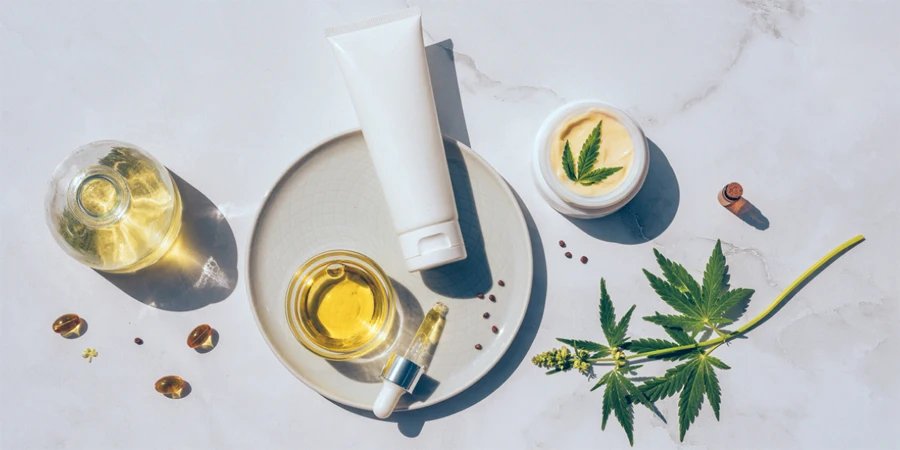The beauty industry is on the brink of a transformative era, with the Mediterranean diet’s revered ingredients leading the charge towards natural, effective skincare solutions. As consumers increasingly seek products that offer both health benefits and ethical sourcing, ingredients familiar to our kitchens are making their way into our beauty routines, promising not just enhanced beauty but a connection to the rich, cultural heritage of the Mediterranean region.
Table of Contents
The rise of Mediterranean ingredients in beauty
Key drivers behind the trend
Mediterranean stars: Ingredients making waves
Sustainability and sourcing: The heart of Mediterranean beauty
Action points for embracing the Mediterranean trend
Conclusion
Main
The rise of Mediterranean ingredients in beauty
The burgeoning interest in the Mediterranean diet, celebrated for fostering long and healthy lives, is now making a definitive mark on the beauty sector. This transition is characterized by the incorporation of natural skincare products that spotlight ingredients traditionally found in Mediterranean diets—ranging from artichokes to quinoa. These ingredients, once the heroes of our kitchens, are now emerging as the champions of our skincare routines, promising not just superficial beauty enhancements but profound health benefits as well.
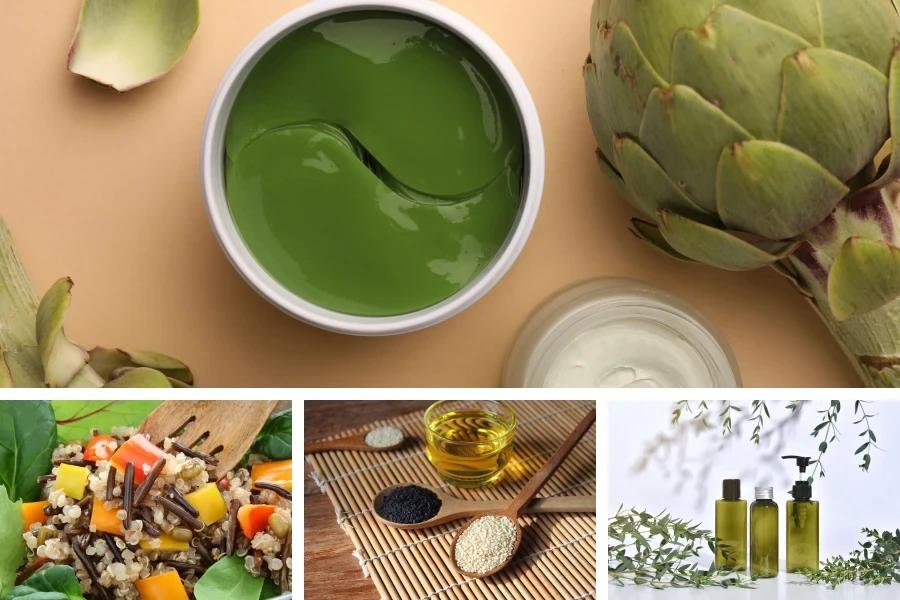
The global natural beauty market, with its steady growth trajectory since 2018, illustrates a broader consumer shift toward products that marry aesthetic appeal with health and wellness benefits. Predictions indicate a leap from $13.87 billion in revenue in 2024 to $18.01 billion in 2028, signaling a robust and expanding interest in natural beauty solutions that are deeply intertwined with the Mediterranean lifestyle. This dietary pattern, renowned for its rich, antioxidant-laden ingredients, has seen a 57% increase in global Google searches over the last year, underscoring its rising popularity and influence beyond the culinary world and into the realms of beauty and skincare.
Key drivers behind the trend
Several pivotal forces are propelling the Mediterranean ingredient trend forward in the beauty industry. First, there’s a growing consumer pursuit of “longevity ingredients” as the new frontier in anti-aging skincare. This shift sees beauty consumers across generations gravitating towards ingredients that not only promise to slow the signs of aging but also prioritize the health and resilience of the skin over time. The Mediterranean diet, with its cornerstone ingredients like Extra Virgin Olive Oil (EVOO), tomatoes, and lemons, offers a treasure trove of such elements, rich in antioxidants and natural acids that support skin health and longevity.
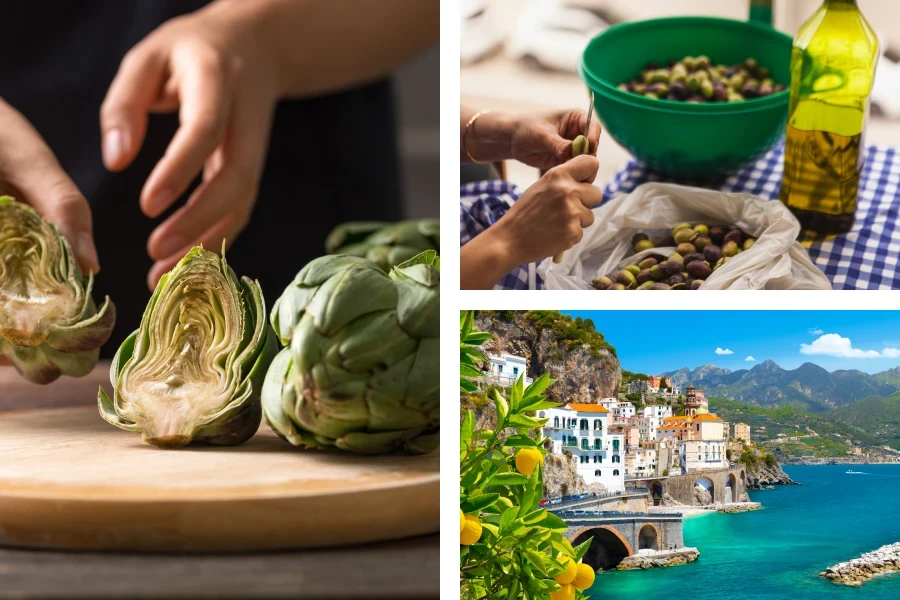
Moreover, sustainability and ethical considerations are becoming increasingly important to consumers, who now seek out products that align with their values. The “Preservationists,” a consumer persona identified within the trend, prioritize sustainability, ethics, and the support of small-batch, seasonal, and locally made beauty products. This aligns perfectly with the ethos of the Mediterranean lifestyle, which emphasizes natural, sustainable, and ethically sourced ingredients.
The concept of regenerative farming and its promise of sustainable alternatives for brands and ingredient suppliers is another key driver. This approach not only ensures the availability of more potent and nutrient-rich products but also appeals to consumers’ growing environmental consciousness.

Additionally, the organic beauty boom, underscored by a rising demand for organic claims and the critical role of certifications in substantiating these claims, further fuels the trend. The UK’s Soil Association, for example, certified 22% more products in 2022 than in the previous year, indicating a strong and growing preference for organically certified beauty solutions.
Lastly, the educational content surge on platforms like TikTok, highlighting the Mediterranean diet’s skin benefits, plays a significant role in spreading awareness.
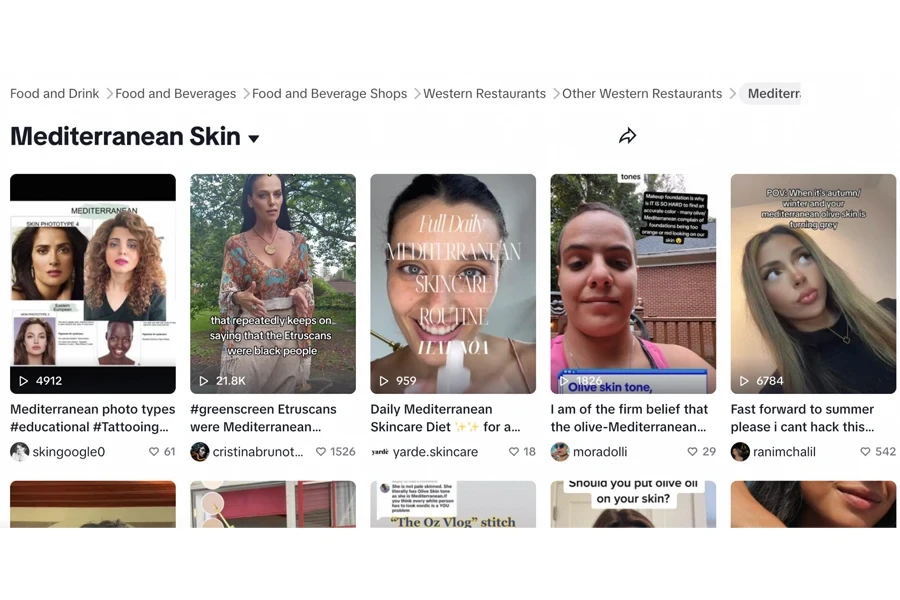
This digital advocacy has contributed to the Mediterranean diet being named the ‘world’s healthiest’ for six consecutive years, bringing the spotlight not just on the diet itself but on the potent beauty benefits of its key ingredients.
By tapping into these drivers, the beauty industry is not merely adopting a set of ingredients; it’s embracing a comprehensive lifestyle approach that values health, sustainability, and the authentic storytelling of Mediterranean traditions. This profound integration of Mediterranean diet-derived ingredients into beauty products not only caters to the current market demands but sets a new standard for what consumers expect from their skincare and beauty routines.
Mediterranean stars: Ingredients making waves
Exploring the key ingredients, Extra Virgin Olive Oil stands out for its antioxidant properties, alongside artichokes and quinoa, known for their skin-supporting benefits.
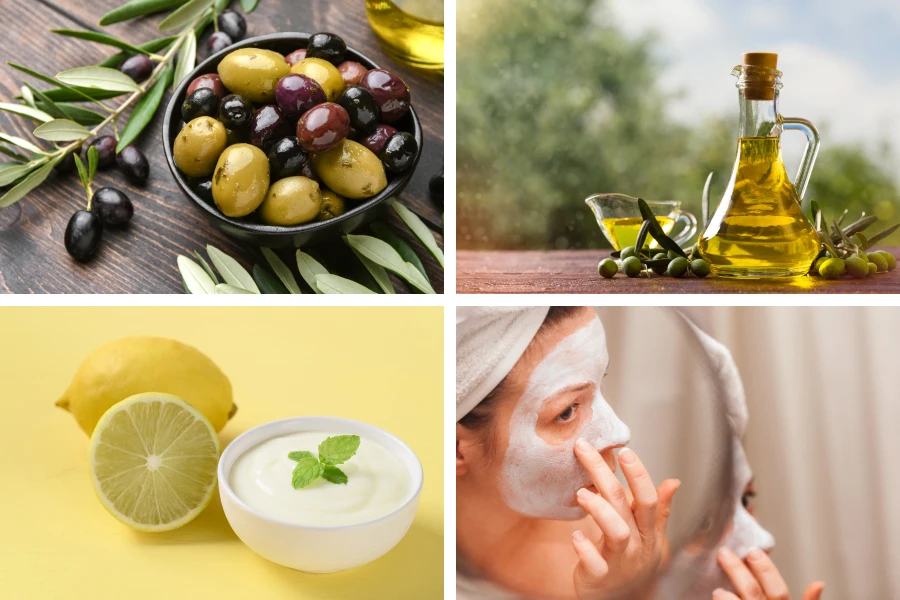
Beyond the plant-based ingredients, dairy products like yogurts offer microbiome-boosting effects, with Korres’ Greek Yogurt range exemplifying this. The spotlight on these ingredients highlights a demand for products that offer deeper, more meaningful benefits than conventional beauty solutions.
Sustainability and sourcing: The heart of Mediterranean beauty
Sustainable sourcing practices are crucial in this trend, with a focus on regenerative farming to ensure ingredient potency and environmental stewardship. Transparency in the supply chain and collaborations with Mediterranean farmers are becoming key factors in brand differentiation. This emphasis on sustainability caters to consumer demand and contributes to a more responsible beauty industry.

Action points for embracing the Mediterranean trend
For brands looking to incorporate Mediterranean diet-derived ingredients into their offerings, several strategies emerge. These include sourcing responsibly, leveraging the concept of “gourmet beauty,” extending the trend to haircare, and innovating with scents inspired by Mediterranean cuisine. These action points offer a roadmap for brands aiming to capture the essence of the Mediterranean in their products, ensuring alignment with consumer expectations and values.
Conclusion
The intersection of the Mediterranean diet and beauty signifies a pivotal moment in the industry, blending tradition with modern aspirations for health, sustainability, and beauty. As we look towards 2025, it’s clear that these ingredients not only offer a bridge to a healthier lifestyle but also represent a broader shift in consumer values and expectations. Embracing this trend is not just about adding new ingredients to a product lineup; it’s about connecting with a global narrative that values authenticity, health, and the environment.
